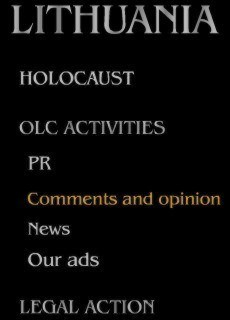|
Almost a decade has passed since the historic decision by the United Nations in 2005 to designate January 27, the day of the liberation by the Soviet Red Army of the infamous Auschwitz-Birkenau death camp as International Holocaust Remembrance Day. And although it was fairly obvious from the beginning that such a step would undoubtedly boost Holocaust commemoration and education worldwide, it was also clear that there were likely to be pitfalls along the way in various countries, depending on a variety of political factors. In fact, issues such as the over universalization of the Holocaust and its lessons, as well as inaccurate comparisons of the Shoah with other tragedies continue to plague the events sponsored to mark January 27, but in the larger scheme of things one cannot deny the positive impact of the UN decision.
In the meantime, January 27 is noted here as International Holocaust Remembrance Day, especially by the media, which presents a variety of Shoah-related features, albeit on a much smaller scale than on Yom Hashoa, but it has not yet developed its own unique identity. There have been various suggestions on how to do so, but none have caught on. There is, for example, no major national ceremony, like the ones at Yad Vashem, or even the minor ones at Lochamei Ha-Gettaot, Tel-Yitzhak or Yad Mordechai. None of the media change their entire schedules to Holocaust mode, but in my opinion, there is nothing wrong with that. As the country of the victims, it is important that Yom Hashoa retain its primacy on the national calendar and in public consciousness, and that it continue to be the main occasion for national mourning.
Given these circumstances, the question remains how to best maximize the impact of January 27, without in any way diminishing Kaf-Zayin Nissan (the date of Yom HaShoah, in accordance with the Jewish calendar)? I think that the best way to do so, would be to turn International Holocaust Day into a day to focus on practical Holocaust-related issues. As it is, the Israeli media very often tends to ignore various Holocaust stories that might be important, but are not attractive to them media-wise. January 27 should be the day when oft-ignored Shoah topics get their due, and the attention generated gives an impetus for at least serious national discussion and debate, if not effective and comprehensive action.
In this regard, two specific topics come to mind, that should be dealt with on January 27-the final efforts to bring Nazi war criminals to justice and the intensifying attempts by numerous Eastern European countries to rewrite the hereto accepted narrative of World War II and the Holocaust to hide the highly-significant role of local Nazi collaborators in the mass murder of Jews and to promote the canard of equivalency between Communist and Nazi crimes. In both cases, the Israeli government has done virtually nothing in recent years to deal with these problems, which have now become much more urgent. As far as bringing Holocaust criminals to justice, the urgency is obvious, since time is clearly running out and only a few years at most remain for this effort. In the case of the campaign to distort the history of the Shoah, Israel’s lack of action combined with similar silence from the United States and the European Union, have emboldened the major offenders, such as EU members Lithuania, Hungary, Latvia, Estonia, Croatia and Romania, as well as the Ukraine, to intensify their efforts and more blatantly rewrite their own local Shoah narratives.
These two issues should be on the national agenda today as a means of starting a necessary and important dialogue which will hopefully lead to concrete governmental action. This is not only the right thing to do, but is in my opinion, the most appropriate way to infuse International Holocaust Remembrance Day with very meaningful and appropriate content.
blogs.timesofisrael.com
| 

